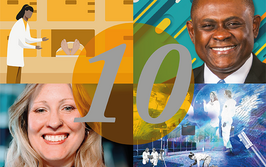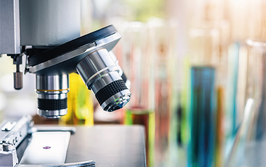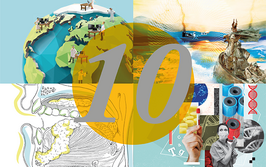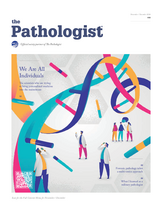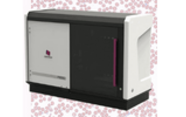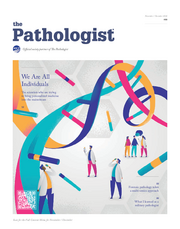
LITMUS for the Liver
A new project coupling biobanking, research and industry is in search of biomarkers for the evaluation of non-alcoholic fatty liver disease
The LITMUS (Liver Investigation: Testing Marker Utility in Steatohepatitis) project aims to develop, validate and qualify biomarkers to assess patients with non-alcoholic fatty liver disease (NAFLD) and identify those most at risk of developing severe inflammation and liver scarring. A pioneering endeavor funded by the European Innovative Medicines Initiative 2 Joint Undertaking, the project brings together clinicians and scientists from prominent academic centers across Europe with companies from the European Federation of Pharmaceutical Industries and Associations (EFPIA). In total, 47 international research groups based at leading universities and pharmaceutical companies from 17 different countries are participating in the project.
Fay Betsou, Chief Scientific Officer at the Integrated BioBank of Luxembourg (IBBL) explains her organization’s role. “IBBL is the central biobank for the LITMUS project. As such, we will gather all of the biological samples that are currently stored at the other partners’ sites. We will also serve as the central collection and storage point for the samples that will be freshly collected for the LITMUS project.” These samples, obtained from 1,500 or more patients across Europe, will include blood, plasma, serum, DNA, RNA, urine, stool and liver biopsies. IBBL’s task? To create a catalog of the samples and their associated data and make it available to the research community.
“Since the beginning, IBBL has focused on establishing and nurturing international partnerships and has been part of a number of consortia within the frameworks of the Innovative Medicines Initiative, Horizon2020 and the Joint Programme in Neurodegenerative Disease Research,” says Betsou. The use of a trusted central biobank and optimized, validated protocols is a way for European consortia – especially those that include prospective collection of biospecimens – to ensure standardization. Even in cases where samples have already been collected, a central biobank can be used retrospectively to gather samples and data together, allowing users to check availability and compare samples.
For the LITMUS project, samples will be obtained using standardized collection kits, processed locally according to standard preanalytical operating procedures, and shipped to IBBL for central storage. The samples will be annotated with data on anthropometric, lifestyle, activity, dietary, comorbidity, pharmacotherapy, clinical biochemistry, and histological indices for each patient. The catalog of available samples and data will then be made available to the other consortium partners working on the identification and validation of potential NAFLD biomarkers. But because a collection of samples with extensive clinical data annotation, collected in a standardized manner, holds such tremendous value for research, it won’t be reserved for LITMUS project partners alone. Once the project concludes, its catalog will be made publicly available and researchers from across Europe will be able to access the samples and associated data.
- Integrated BioBank of Luxembourg, “IBBL participates in €34 million EU project on liver disease” (2017). Available at: bit.ly/2kaIvAU. Accessed November 29, 2017.

While obtaining degrees in biology from the University of Alberta and biochemistry from Penn State College of Medicine, I worked as a freelance science and medical writer. I was able to hone my skills in research, presentation and scientific writing by assembling grants and journal articles, speaking at international conferences, and consulting on topics ranging from medical education to comic book science. As much as I’ve enjoyed designing new bacteria and plausible superheroes, though, I’m more pleased than ever to be at Texere, using my writing and editing skills to create great content for a professional audience.



